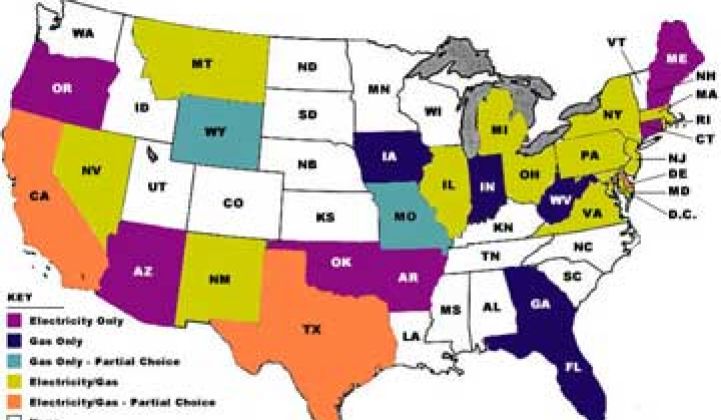Do electricity and a free market mix?
Legislators and policy analysts across the world are weighing in on that question. More than a dozen U.S. states have tried some form of deregulation and the concept has an even longer history in Europe. At the Bloomberg New Energy Finance Conference in New York City, two teams squared off in an Oxford-style debate about the premise that "This house believes that a fully liberalized power market is a bad deal for consumers.”
Arguing for the motion was a team with plenty of experience in regulation and consumer concerns: Mark Cooper, Director of Research at the Consumer Federation of America; Jeff Davis, Chairman of the Missouri Public Service Commission; and Joseph T. Kelliher, Executive Vice President of Federal Regulatory Affairs for NextEra Energy, Inc.
In the other corner was an equal amount of firepower: Peter Bradford, Former Chair of Maine & New York Public Utility Commissions; Derek Bunn, Professor at London Business School; and Gary Fromer, Vice President, Demand Response, Constellation Energy.
The statement up for debate is flawed from the start. There is no such thing as a “fully liberalized” market, and certainly not in electricity. Even deregulated markets have some checks and balances in place. However, even with the market controls that are in place in deregulated markets, Cooper argued that consumers will never get the competition they need to be fully protected. (Pricing power will also be one of the main topics of discussion at The Networked Grid coming May 3 and 4 to San Francisco.)
Davis took that argument a step further using the lens of his experience in Missouri. “Electric competition is not just a bad deal, it’s a horrible deal for the consumer,” he proclaimed. He noted that the room rate at the hotel we were all sitting in (the Pierre) was what most families in Missouri spend on food in an entire month. He noted that they enjoy fairly low electricity rates in his state, and that was due to regulation. He pointed to the fact that prices in Texas, which were deregulated nearly a decade ago, have increased. However, there is debate over whether prices would have stayed low given the ups and downs of natural gas during that time period.
Kelliher was less bullish on regulation, and only acknowledged that the market should not be fully deregulated. “I think it all depends on what 'full liberalization' means,” he said. "In the U.S., it means deregulation. In that light, I’m very comforted by the side I’m on.”
The team against regulation rejected many of these assumptions. Bradford argued that when deregulation is done effectively, as he had seen in the Northeast, “I’ve seen more customer choices, never fewer. Lower costs, never higher and more technology, not less,” he declared. He also noted that regulators are political appointees and so regulation can never be separated from sways in political opinions.
Bunn also spoke of his experience in England as proof that deregulation can be good for consumers. He noted that 20 years ago, before deregulation happened on the other side of the pond, he would have been tempted to argue the other side -- but not anymore. He pointed to increased productivity and competition and lower prices. However, while he talked of strong gains in efficiency, like the issue of smart grid, he didn’t articulate, beyond prices, how that works best for consumers.
Fromer made the argument in terms of innovation -- something that many in the smart grid industry can relate to. The currently regulated utilities just don’t move very quickly when it comes to innovation. “If we want to preserve the status quo,” he said, “then a highly regulated market is an effective way to go.” He also pointed out that current regulation doesn’t allow differentiation between customers -- a huge setback when it comes to taking advantage of smart grid technologies coming to the home.
While the team arguing against the premise tugged on the heart strings of the business community with points about efficiency and innovation, the debate was ultimately decided in favor of the other team. One of the most impactful arguments was Davis’ point about families strapped for cash that could be left behind in a deregulated market.
The good news is that it does not have to all or nothing. Europe is largely moving towards liberalization and as lessons are learned, it is likely that more state governments will look into deregulation -- especially where prices are high. But deregulation merely for the sake of deregulation doesn’t make sense, and it is essential to keep consumer interests front and center.
But like everything else when it comes to electricity generation and delivery, the solution will not be one-size-fits-all. The debate win was also not a rubber stamp for the regulated market in its current form. “This does not mean that regulation doesn’t need to change,” said Cooper.



